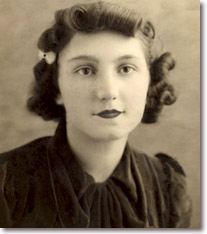
In early 1938, Lisa Jura, a young Jewish girl in Vienna, dreamed that one day she would become a concert pianist. In March, her dreams were shattered.
German troops took over Austria, her homeland. Lisa Jura became a refugee, one of about 10,000 children brought to England before World War II as part of the Kindertransport—a mission to rescue children threatened by the Nazis.
Her daughter Mona Golabek and writer Lee Cohen first told her story in the book The Children of Willesden Lane.
The story of The Children of Willesden Lane opens soon after the Nazis turned Austria into a place where Jews were regarded as outcasts. Then it moves to England where Lisa Jura lived in a home for young refugees at 243 Willesden Lane. The story follows Lisa’s coming of age during WW11 and her courageous journey to fulfil her dream of music against one of the darkest periods in history.
Malka looked at he daughter who was next in line, and held her close.
“You must make me a promise.”
“What is it, Mama?”
“You must promise me…that you will hold on to your music. Please promise me that.”
“How can I?” Lisa sobbed. “How can I without you?”
She dropped her little suitcase and embraced her mother tightly.
“You can and you will. Remember what I have taught you. Your music will help
you through—let it be your best friend, Lisaleh. And remember that I love you.”
The book was then turned into the stage show The Pianist of Willesden Lane. Mona Golabek, author and performer, describes how she came to tell her mother’s story:
“Hold onto your music. It will be your best friend in life.”
As long as I can remember, these precious words have accompanied my journey through life. They are the last words spoken by my grandmother to my beloved mother, Lisa, at the Vienna train station in 1938 as hundreds of crying children said their good-byes forever to their parents and boarded the Kindertransport to escape persecution by the Nazis. My mother started teaching me the piano when I was four years old. She told me fantastic tales of that journey from old-world Vienna to a rambling orphanage at 243 Willesden Lane in London.
Lisa Jura with Aaron, 1946
She spoke about mysterious individuals like Aaron, Johnny “King Kong,” Mrs. Cohen who became a mother to thirty refugees, and Hans, the blind boy who waited faithfully each day for her in the basement of the hostel where she practised the piano as the Blitz ravaged London. I became a concert pianist because of those words and stories, and because of my mother’s passionate connection to music. Every piano lesson with her was a lesson about life, about love, and about faith. Twenty years ago, my mother was finally able to show me the photograph that my grandmother had given to her that fateful day at the train station. On the back in shaky handwriting was written the following:
“So that you will never forget your mother. . . .”
I was so overwhelmed by the love my grandmother showed in sending her daughter away, losing her forever to save her, that I vowed to share this story with the world.
I hope the strength and joie de vivre my mother showed as a teenager, studying at the London Royal Academy of Music, playing the piano for the soldiers, and ultimately facing the terrible truth of the Holocaust, will be an inspiration for everyone.”
The Pianist of Willesden Lane plays in the main house from 20 January – 27 February, find out more.


